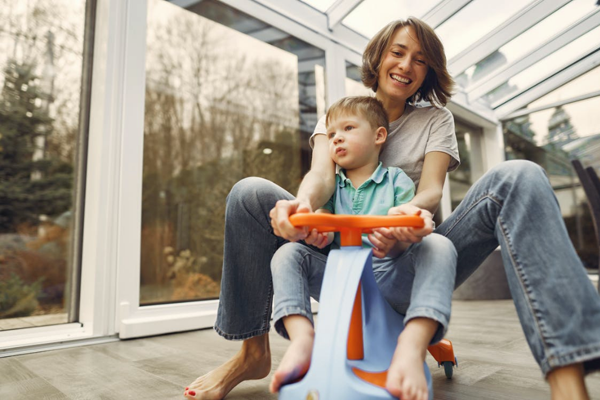
Photo courtesy of Gustavo Fring / Pexels
Helicopter Parenting. What is it and how do we avoid it when all we really want is the best for our kids?
As a recovering helicopter parent myself, I can tell you that it is both exhausting and unnecessary. As parents, we hope that our children will have everything they need and will grow and develop into fully functioning adults. But what happens when our own well-intentioned parenting becomes a barrier to development and growth? How does unconditional love turn into hovering and hypervigilance when caring for our children? What toll does overparenting take on our own lives and happiness?
The term “helicopter parent” was created as a way to describe what overparenting looks like and most likely feels like to a child. Recently, we had family in town that included my two nieces ages 6 and 10. These little girls are delightful, well-mannered and, well . . . completely overparented. Their parents are doting, loving, committed and consistent. Although their deep love for their children is apparent in all that they do, they simply are doing too much! The two girls are interrupted at every turn with one parent wanting to know what they are doing, wanting to help make the art projects that we were doing, seeing if they were hungry, cold, upset, sad, etc., etc., etc. They videotaped every single cute thing they did and said, and I quietly wondered if my precious nieces were going to learn to perform for the camera and what piece of their own authenticity would be lost in the process. One or both of their parents is constantly available and mindful to save the girls from any and every disappointment, mistake, and learning opportunity. EVERY. SINGLE. ONE. And in return, the girls are scared of everything and have a lack of confidence that is apparent despite the pure sweetness of their temperaments. Afraid to try new things. Afraid to meet new people. Afraid. Afraid. The more they are afraid, the more they are overparented, which in turns creates more fear.
And it is easy to look back and see similar patterns in my own parenting journey, until we were at the brink of pure exhaustion and began to learn new ways of parenting. How many moments were wasted trying to micromanage my children’s development, when that time could have been spent experiencing more of the journey with them? Thankfully, we had teachers and administrators that helped guide us through positive discipline and thankfully we listened and trusted the process with all of the ups and downs that came with it.
Despite the playful and lighthearted name, helicopter parenting is a serious and growing concern for educational professionals from the earliest preschool years all the way to the college admissions process. Helicopter parenting can contribute to a child’s inability to feel confident, capable and self-reliant. Not having the ability to make mistakes and learn from them, the constant pressure to overperform, and the nagging effects of the lack of autonomy from parents can lead to an increase in depression, anxiety, lower problem-solving skills and lower academic abilities. Depression in young children is at an all-time high. This is serious stuff we’re talking about here, because overparenting sends the message to a child that they are not capable or not safe unless a parent is nearby. I don’t know about you, but I want my children and students to approach adulthood feeling confident, capable, resilient and able to problem-solve.
Overparenting is stepping in to help when it is not needed or asked for. It is offering unsolicited advice to the older teenager or adult child. It is hovering and trying to keep a child from ever feeling disappointed or ever making a mistake. Consider this: If a child is kept from every failure and they do not have the opportunity to discover their own resilience, they may approach life afraid of ever making a failure and this anxiety can be a defining thread in their lives.
Sandi Schwartz, a researcher for the Gottman Institute, suggests the following:
– Support your children’s growth and independence by listening to them, and not always pushing your desires on them.
– Refrain from doing everything for your children (this includes homework!). Take steps to gradually teach them how to accomplish tasks on their own.
– Don’t try to help your children escape consequences for their actions unless you believe those consequences are unfair or life-altering.
– Don’t raise your child to expect to be treated differently than other children.
– Encourage your children to solve their own problems by asking them to come up with creative solutions.
– Teach your children to speak up for themselves in a respectful manner.
– Understand and accept your children’s weaknesses and strengths and help them to use their strengths to achieve their own goals.
In addition to these steps, it is important to remember that we must step aside sometimes and allow children to simply feel the natural consequences of an action and to experience disappointment from time to time so that they learn resilience. For example, if your child forgets their shin guards for soccer, it means not rescuing them. Not driving back to retrieve them. Allowing them to feel the consequences by sitting out of practice or the game. It means not rescuing them if they forgot to pack their homework or forgot their lunch. It means giving them the loving and supported space to figure things out on their own while continuing to receive parenting that is both kind and firm (The fundamental positive discipline concept). Allowing them the chance to figure out small things now will help them feel confident enough to figure out bigger things later.













